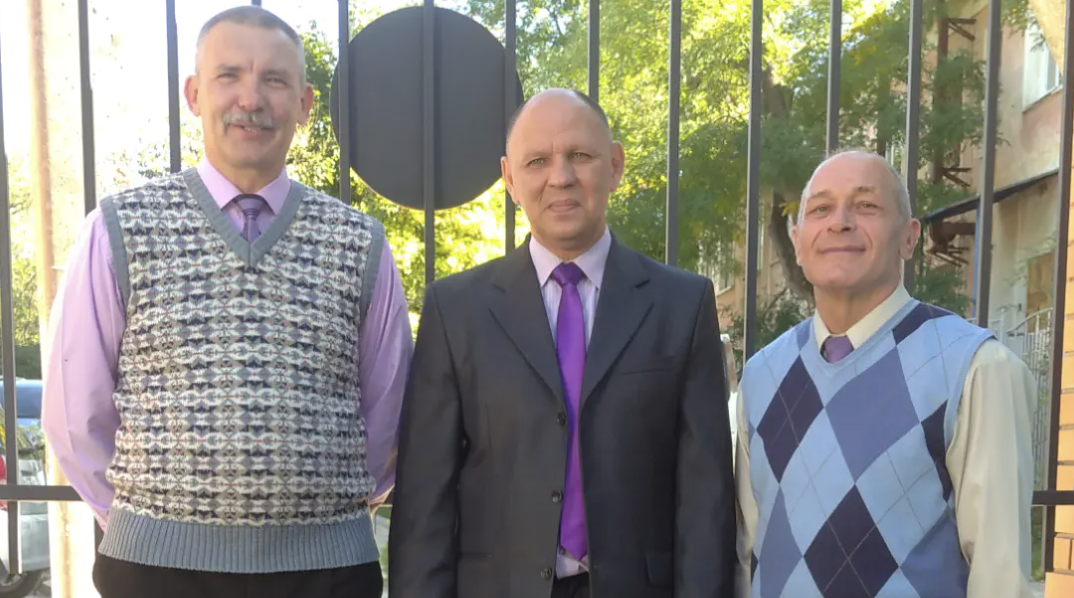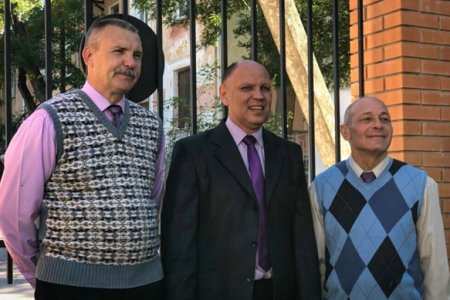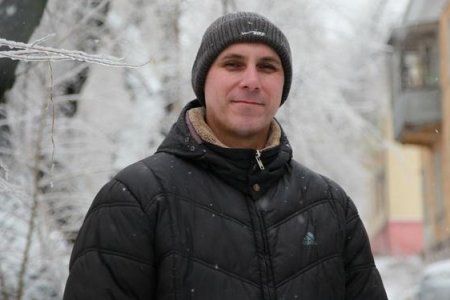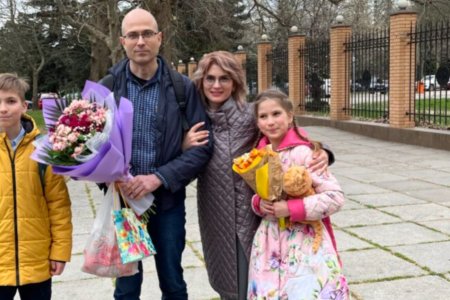
The Russian occupation ‘Sevastopol municipal court’ has upheld six-year sentences against three Jehovah’s Witnesses, accused only of practising their faith. The sentences have now come into force, with 60-year-old Volodymyr Maladyka; Yevhen Zhukov (53) and Volodymyr Sakada (52) likely to be illegally taken from Crimea to medium-security prison colonies in Russia.
The three men took part in the appeal hearing on 11 October by video link from the SIZO [remand prison] where they have been held since the original sentences were passed by ‘judge’ Olga Berdnikova from the occupation Nakhimovsky District Court in Sevastopol on 6 October 2022. For some reason, the men’s names are concealed in the ‘court’ report on the appeal hearings, with the name only of the presiding ‘judge’, Gennadiy Vladimirovich Nikitin, although there would have been a panel of three.
Although the men were convicted of having ‘organized the activities of an extremist organization’ (Article 282.2 § 1 ), their activities were those of any Jehovah’s Witnesses. The charges, which are largely standard, are based solely on the Russian supreme court’s extraordinary ruling on 20 April 2017 which effectively outlawed a world faith by claiming it to be ‘an extremist organization’
Nikitin & Co. claimed there to be no grounds for revoking the sentences although Russia is in violation of international law both by applying its repression legislation on Ukrainians in occupied territory and through flagrant religious persecution which even Russia’s own constitution, as well as international conventions to which Russia is a party, prohibit. During the appeal hearing, the men’s lawyer pointed out that Maladyka; Sakada and Zhukov “had been convicted merely of professing their beliefs, based on the Bible and of peacefully practising their Christian faith.” The men’s conviction made it clear, the defence added, that they would face criminal prosecution unless they renounce their faith. This is despite the claim from Russia’s government that the 2017 supreme court ruling did not mean that believers would be persecuted for individually practising their faith. It also ignores the fact that even Russia’s ombudsperson, Tatiana Moskalkova, has acknowledged that there is a clash between the constitutional right to religious freedom and Russia’s prosecution of believers using its legislation on so-called ‘extremism’.
One can point to a number of similar statements, even from Russian president Vladimir Putin, confirming the lack of any legitimate grounds for such religious persecution. This does not change the fact that the Russian regime systematically persecutes, and often imprisons believers, purely for practising their faith. The Jehovah’s Witnesses’ website reports that in Russian-occupied Crimea, only two believers have, thus far, received suspended sentences with 27 Crimean believers facing criminal charges, and twelve already sentenced to terms of imprisonment.
Russia’s ‘enforcement bodies’ in occupied Crimea apply the same methods as in other cases of political or religious persecution, with the FSB ‘infiltrating’ and / or illicitly taping Jehovah’s Witness discussions, etc. and also pulling out ‘secret witnesses’ who may never have set eyes on the defendants. This is despite the fact that believers do not, in any way, deny their religious faith and manner of worship.
As reported, there were armed searches of nine Jehovah’s Witness homes in Sevastopol on 1 October 2020, with these resulting in the arrests of four men: Volodymyr Maladyka (b. 1963); Volodymyr Sakada (b. 1970) Yevhen Zhukov (b. 1969); and Ihor Schmidt (b. 1972). All of them were remanded in custody the following day, however, detention was, after several months, changed to house arrest. Although he was prosecuted under the same article of Russia’s criminal code, Schmidt was ‘tried’ separately, with his ‘case’ under senior FSB ‘investigator on particularly important cases’, Sergei Bosiyev. He was sentenced on 25 October 2021 by ‘judge’ Liudmyla Tumaikina to six years’ imprisonment, with this upheld at appeal level on 17 January 2022.
The ‘case’ of Maladyka, Sakada and Zhukov was under FSB ‘investigator’ Aleksandr Chumakin, who has been involved in other persecution of Jehovah’s Witnesses, as well as of Crimean Tatars, on equally flawed charges. The indictment originally included Oleksandr Kostenko, but he had left occupied Crimea before the arrests.
In October 2022, ‘prosecutor’ Valery Yazev demanded 7.5-year sentences, claiming that Maladyka; Sakada and Zhukrov had “committed a grave crime against the constitutional order and the security of the state”.
First Berdnikova and now Nikitin & Co. were willing to ignore the idiocy of these assertions, as well as the fact that the indictment ‘accused’ the men of entering into a
Details about other cases of persecution of believers in occupied Crimea can be found here.



